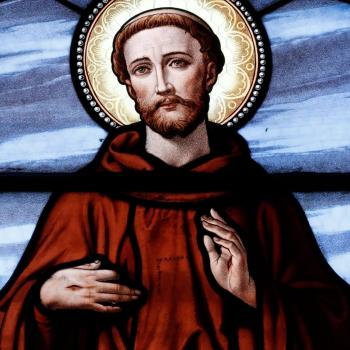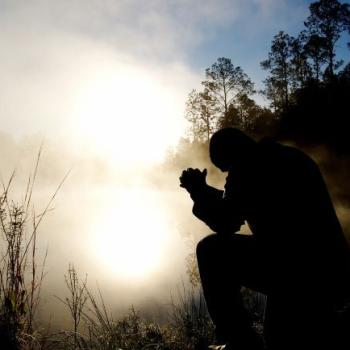Continuing in this series on what makes for a robust program of Christian discipleship and learning, I now turn to a third, fundamental domain of sacred knowledge: the study of Church History. If there is one area of Christian study that has clearly been neglected in recent years, especially by Evangelicals, it is this one.
The atrocious lack of knowledge of history in general, let alone Church History, is a glaring mark against the contemporary Church in America. If we fail to retrieve and transmit our own Christian history, then how do we expect to engage with the current problems of our times? But more than that, is there not an intrinsic value to knowing history, especially the history of God’s people (warts and all)? The faithful Christian simply must answer in the affirmative! This is an area of the Church’s life that desperately requires correction. Before discussing Church History proper, however, there are a few things to consider theologically and biblically.
A Very Short Introduction To Narrative Theology
Since the work of the German theologian Karl Barth (1886-1968), there has been an emerging movement in both Protestant and Catholic theology of seeing the Bible predominantly as a narrative, or story. The Bible is a story that we are expected to “live into” as followers of Christ. Main proponents of this so-called “narrative theology” are theologians like George Lindbeck and Hans Frei. While this narrative theology can have its pitfalls, it also has several advantages.
On the negative side, narrative theology can fail to take seriously the propositional claims made in Scripture. This can call into question the necessity or relevance of foundational dogmas and moral truths that we derive from the text. However, nothing about narrative theology logical entails that we cannot derive theological propositions from the Bible, nor that those proportions do not have actual truth values. And so while there could be a naive danger here, in virtue of thinking the Bible to be merely a literary work, thinking of the Bible as a literary work does not necessitate that it is false or unreliable or errant.
On the positive side, then, narrative theology embraces and illuminates for us the simple fact that most of the Bible is written as a story. It is a story through which we are meant to learn spiritual truths, and from which we are meant to model our behavior. The Christian life is, as the 20th-century Catholic theologian Hans Urs von Balthasaar put it, like a “theological drama.” This theo-drama is a story like many others, albeit a real one for which we have been designed and to which we have been called to participate in. In the Hebraic idiom, it is the “story of stories!”, for it the story of a real God, and we are His real-life characters.
The Bible as Historical Narrative
The Jewish scholar, Meir Sternberg, speaks of the Bible in similar terms. The Bible is a literary work, but its primary genre is historical narrative. It is worth quoting Sternberg at length on how unique this genre is to the ancient world and why it matters to us today:
As regards cultural value, temporal scope, and persuasive strategy, this art of [biblical] narrative has no parallel in ancient times. Alone among Orientals and Greeks, it [the Bible] addresses a people defined in terms of their past and commanded to keep its memory alive…By incorporating the definition and command and observance, the narrative not only illegitimates all thought of fictionality on pain of excommunication. It also uniquely internalizes its own rules of communication, whereby the remembrance of the past devolves on the present and determines the future. It is this cultural imperative that accounts for what a distinguished historian has recently termed ‘the greatest surprise’ in the whole story of history writing. It explains how there suddenly emerged a people ‘more obsessed with history than any other nation that has ever existed….It was this historical memory that made Israel a people’; why ‘they stood alone among the people of the ancient world in having the story of their beginnings and their primitive state as clear as this in their folk-memory,’ in creating the history of a nation and even of humanity itself; whence, in short, this ‘pocket-size example of the very rise of historiography.’
Sternberg, The Poetics of Biblical Narrative, 31
In short, the Hebrew Bible actually marks the beginning of history writing itself. Why? Because the divine strategy of God was to reveal Himself in history to a particular people at a particular place over particular times–and then command them to remember everything by writing it down! Revelation knowledge is historical knowledge. Therefore, if the Bible itself is compromised mainly of historical recollection on God’s great acts in space and time, then to neglect the Church’s post-biblical history is to ignore the study of how God manifests Himself to us as a people. To know history is not only to know oneself, it is to know one’s God.
Another Short Introduction: Theologies of Retrieval
In addition to this approach to the Bible as story, some 20th-century Catholic theologians, like von Balthasaar, also belonged to a movement called the “nouvelle theologie.” This was an academic project that slightly predated Vatican II (1962-65). Simply translated, the “new theology,” it was only new in that it sought to regain the theological framework of the early church fathers, and renew scholarly interest in the biblical text itself. Another name for this movement was “ressourcement,” as it sought to recapture the Church’s earliest teachings and recontextualize them for the purpose of evangelizing the modern world.
In Evangelical theology, especially in the last generation and especially through the works of men like John Webster, Oliver Crisp, and Kevin Vanhoozer, both narrative theology and ressourcement theology have emerged in a particularly Protestant fashion. This renewed emphasis on ressourcing Protestant theology in early church history often goes by the name “Retrieval theology.” In essence, this retrieval aims to counter much of the modernist and post-modernist influences that have infiltrated Protestant thought in the post-Enlightenment era. Thomas Oden’s masterpiece of systematic theology, Classic Christianity, is prime example of retrieval theology.
Retrieval theology can thus serve as a bulwark against current trends in culture that might seek to undo the wisdom and knowledge of the Church’s past. This would include not only her theological musings, but also the stories of her great men and women, of the saints. Retrieval theology in this sense can also defend against the cultural trend toward revisionist history. Revisionist histories often see the past through very narrow and simplistic lenses: as either barbaric, naive, and unscientific; or as cruel, misogynistic, and exploitative.
And so, as theological apologists and biblically faithful Christians, we can embrace both the Catholic version of ressourcement theology, with some caveats of course, and also welcome the retrieval theology now emerging in Evangelical, academic theology. By and large, these are healthy movements aimed at recapturing much of the Church’s social history and dogmatic thought.
Church History as Retrieval of Family Legacy
These two areas of narrative theology and retrieval theology seem to highlight some very basic needs in the life of the human person. First, we need to feel a part of a bigger story. Second, we need to feel anchored to our own past, the past of our ancestors. The second need is what we might call a feeling or sense of “legacy.” It is also a need the Bible makes very explicit, especially in the Old Testament, as it relays for us historically the promises of God coming to fulfillment through particular families, people groups, and lineages. The Book of Genesis is the book of patriarchal blessings and covenants. God’s promises are fulfilled through familial legacies, even if those legacies are tainted with sin and transgression of every sort. But God is faithful, even when His children are not.
As such, the Bible give us clear illustrations of both being a part of a bigger, theological picture, and also having a spiritual heritage and family line. We see this in the history of the nation of Israel, and in the Church’s communion of saints. Sections of the Bible, like 1 Chronicles 1-9, demonstrate with utter clarity how much God considers and cares deeply about the literal history and lineage of His people. The oft overlooked genealogies in the Old Testament, and even Matthew and Luke’s genealogies in the New, are central to the nature of God’s plan in the world. The identity of God’s people, down to the level of particular individual names, matters. This should tell us something about how we should approach history in general and Church History specifically. Our knowledge of Church History is knowledge of our family history, of our ancestral legacy. But this legacy is far more than a mere biologically-grounded genealogy. It is deeply metaphysical.
The Church as Body of Christ
Consider the following passages: Lk 22:32, 1 Thess 5:11, Jn 17:21, Js 5:16, Heb 11:39-40 ff. In these passages and others, the Bible tells of those who are “in Christ” as being one in Him (Rom 12:5, 1 Cor 12:27) and, in virtue of this unity, being able to build up or encourage one another, mainly through prayer. Moreover, this being knit together by the Holy Spirit is not something that physical death simply undoes. We are still one body in Christ, even after our beloved brothers and sisters in Christ have gone on to be with Him. In this way, Church History mirrors the history of the nation of Israel. As the Bible continually refers back to the pre-Atonement history of God’s people as Israel, so does Church History refer back to the post-Resurrection history of God’s people as the new Israel. Christians are descended from Abraham spiritually, because they are descended from the first-born amongst the dead, Jesus Christ.
Early Protestants therefore saw the one church as existing in two metaphysical states: the Church Triumphant–those saints already in the presence of God– and the Church Militant–the saints still fighting the good fight of faith in the world. Although we, having direct access to the Father through Christ, do not pray to the saints, it seems obvious that they still pray for us and on our behalf (Rev 5:8, 8:3). For if the saints are in Christ, and Christ is always interceding for us, then so are the saints interceding for us. After all, it is not as if St. Paul has forgotten about us, as if he no longer prays for us today as he once prayed for the Philippians during his earthly existence.
This theological and biblical exposition highlights the fact that to remember and tell the stories of the faithful men and women who have gone before us, is to remember the lives and tell the stories of our own family, our real family (Mk 3:31-35, Matt 10:32-39). Thus, to study Church History is not only to understand how theology has developed over time, and how different communities have understood the deposit of our faith. To study Church History is also to engage in family storytelling. It is to recall the legacy of God’s people that is also our legacy. This recollection helps us to know who we are in Christ and how we fit into His plan of redeeming all of creation.
As such, the study of Church History, the history of Christ’s Body, should motivate us to retrieve the theological thinking and spiritual practices of our past. In turn, this allows us to avoid the chronological snobbery that C.S. Lewis warned about. It also reminds us of the great theological drama, the grand and real play, in which we are intimately involved. Being involved in this “greatest story ever told” further reminds us of the ontological connection we have to all those saints who have preceded us. We are one with the brothers and sisters in Christ who have played the role of our spiritual forefathers and mothers.
Some Practical Application of Church History
If knowing Church History allows us to not only think along with past generations, but imaginatively enter into a shared story, what are some advantages we might gain from thinking about and living into our Christian heritage?
History as Wisdom
First, knowing Church History provides us a kind of wisdom that we otherwise could not have. Again, to avoid chronological snobbery, or the idea that we know better now merely because we are more technologically advanced, we must engage with the thought life of those that thought before us. The great thinkers of the Great Tradition have already tilled much of the intellectual soil with regards to God’s Revelation. Moreover, as Lewis pointed out, different generations struggle with different kinds of intellectual and spiritual battles. Sometimes thinkers of a previous generation were able to solve certain problems that today we barely recognize, but that are still cause for great concern.
For example, consider the nature of work. It is something we often don’t think about in our culture. But work, to include overwork, is a huge cause of spiritual and emotional problems in our 21st century lives. Secularism often reduces work down to either “money making” or elevates it to “identity making.” In answer to this false dichotomy, reading something on a theology of work by one of the great Puritan theologians, perhaps Richard Baxter, for example, can give us incredible insight into how we should manage our life of work. The same would go for our life of play and leisure or, dare I mention, our pursuit of chastity. Examples could be easily multiplied about past Christians who thought better about these things than we do today. But if we don’t know our history, then we don’t know their wisdom.
Of course, one of the biggest areas of thought that Christians in the 21st century Western context must recapture is that of philosophy, and understanding the role philosophy. This is especially the case in the area of metaphysics. For example, in contrast to Marxist philosophy, which saw all human thought as subject to, and a product of, changes in socio-economic and material conditions, Christian thought exists in a continuum with the past. It is a way of thinking that looks forward and backward, and is always aimed at synthesizing philosophical knowledge from the past with the present context. In this way, Christian philosophy is one way to think about God’s eternal truth, and articulate that Truth for the present day. Marxist philosophy simply declares the end of history in the fires of revolution, usually quite bloody revolution.
As G.K. Chesterton once quipped, the only true democracy is tradition, since it takes into account the opinions of the dead as well as the living. It is in this sense that Christians are neither pure conservatives, nor pure progressives. We do not live in the past blindly, never bothering to advance our understanding of God and His universe. But at the same time we do not rush forward without carefully listening to the voices of our past. Rather, we take all the light of the past, and past tradition, and use it to illuminate our way forward.
Historical People as Models of Virtue
Second, knowing Church History gives us concrete examples of great men and women of faith. Many of these are much closer to us in time and space than the biblical saints, and, by sharing in the sufferings of Christ and carrying out the Great Commission, can act as role models of virtue for us and our children. To not know the lives of men like: Boniface, William Tyndale, John Bunyan, David Livingstone, Jim Elliot, and Eric Liddell, or of women like: Perpetua, Catherine of Siena, Marie Durand, Mary Slessor, Corrie ten Boom or Edith Stein, is to live an impoverished life of faith.
These torchbearers have carried the flame of faith on to our generation, as we must also carry that flame for the next. From them and from their example we can and should teach our children. Virtue building is a crucial aspect of our life in Christ, and as we subject our will to the Holy Spirit in order to becoming more like Christ, part of that submission can be emulating the lives of these great heroes of the faith.

Conclusion: Know Your History
In sum, this third area of Christian study seems more crucial now than in previous generations. Especially as we find our culture split into two secular, yet opposing camps, the modernist and the post-modernist, each of which would label much, if not all, that has come before us as either barbaric, unscientific, and naive (the modernist), or as evil, unjust, and oppressive (the post-modernist). While the Church must accept those critiques that are legitimate, meaning we must accept our history in its fullness, ugliness and all, still we must not fall into the trap of these two camps.
We must also embrace the great legacy the Church has left and the boon it has been to all mankind. I think we need it. I also believe that many young people today need to know they have a past history that goes far beyond just their own personal story. The ever-present “next” generation has to know they have a spiritual legacy, a family heritage, that extends all the way back to the day of Pentecost, if not further. This is critical given that so many today have no biological past to speak of, no family legacy to hold dear.
Church History in this sense can greatly supplement our identity in Christ. For not only are we “in Christ,” but we are in His body, the Church. But it is not only our identity as members of the Church that matters. Hebrews 11:39-40 makes an incredible statement about the current existence of those who have served Christ in prior days, saying that they, the martyrs who have gone before us, are waiting for us so that they can receive their promised perfection! That means that we also have a responsibility to uphold the legacy passed on to us. For just as we thrive in Christ, and as we endeavor for Him, so our spiritual forefathers and foremothers benefit from our actions on earth. How or what exactly we affect in the lives of those who are already with the Lord I cannot say, but that the saints and martyrs share in our own life, as we also share in theirs, is clear. We are, after all, one holy, catholic and apostolic church.
I close with the words of St. Augustine on our future life with God and His people:
How beautiful and lovely are the dwellings of Thy house, Almighty God! I burn with longing to behold Thy beauty in Thy bridal-chamber…Oh Jerusalem, the holy city of God, dear bride of Christ, my heart loves thee, my soul has already sighed for thy beauty! … The King of kings is Himself in the midst of thee, and his children are within thy walls. There are they hymning choirs of angels, the fellowship of heavenly citizens. There is the wedding-feast of all who from this sad earthly pilgrimage have reached thy joys. There is the far-seeing choir of the prophets; there the company of the twelve apostles; there the triumphant army of innumerable martyrs and holy confessors. Full and perfect love reigns there, for God is all in all.













